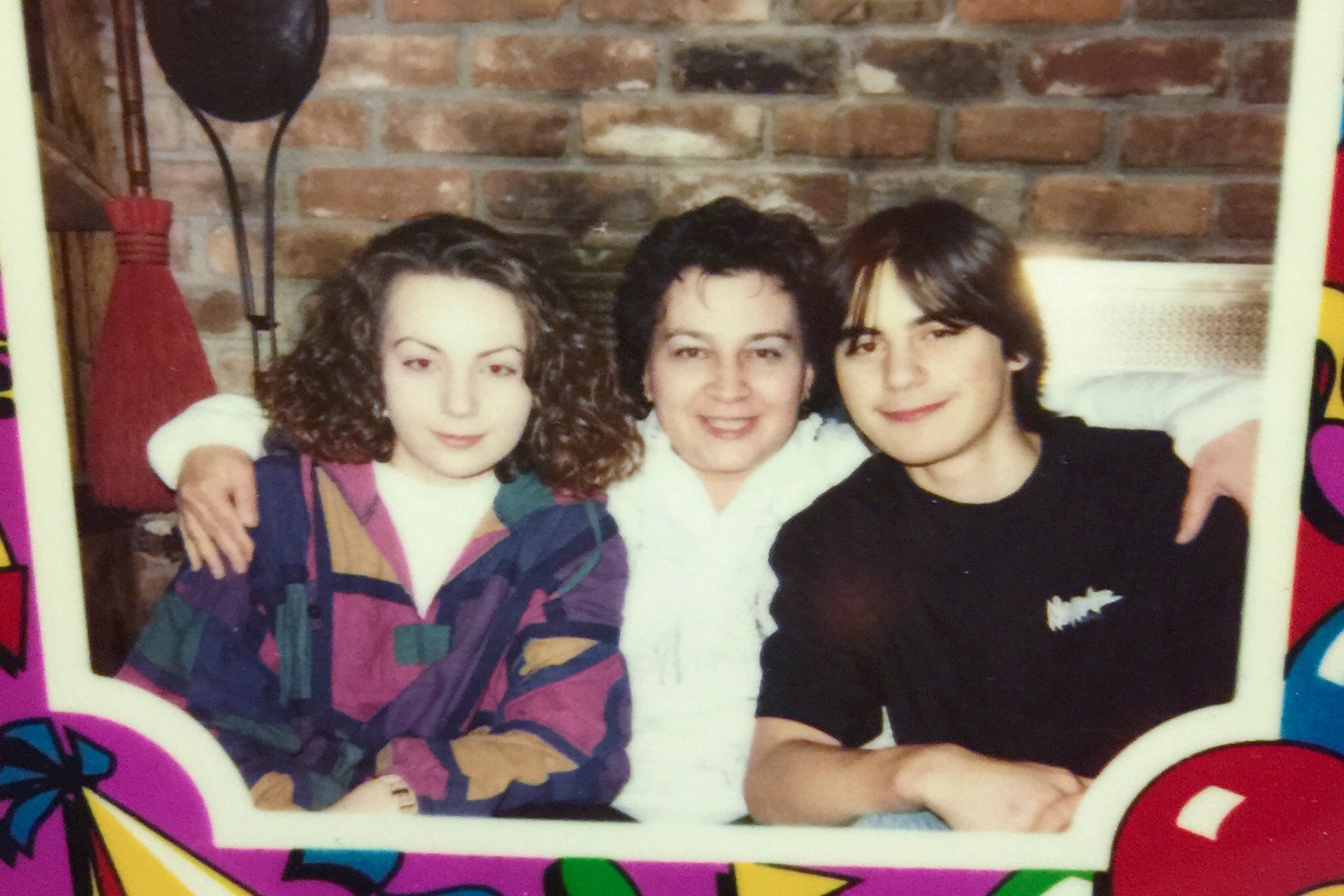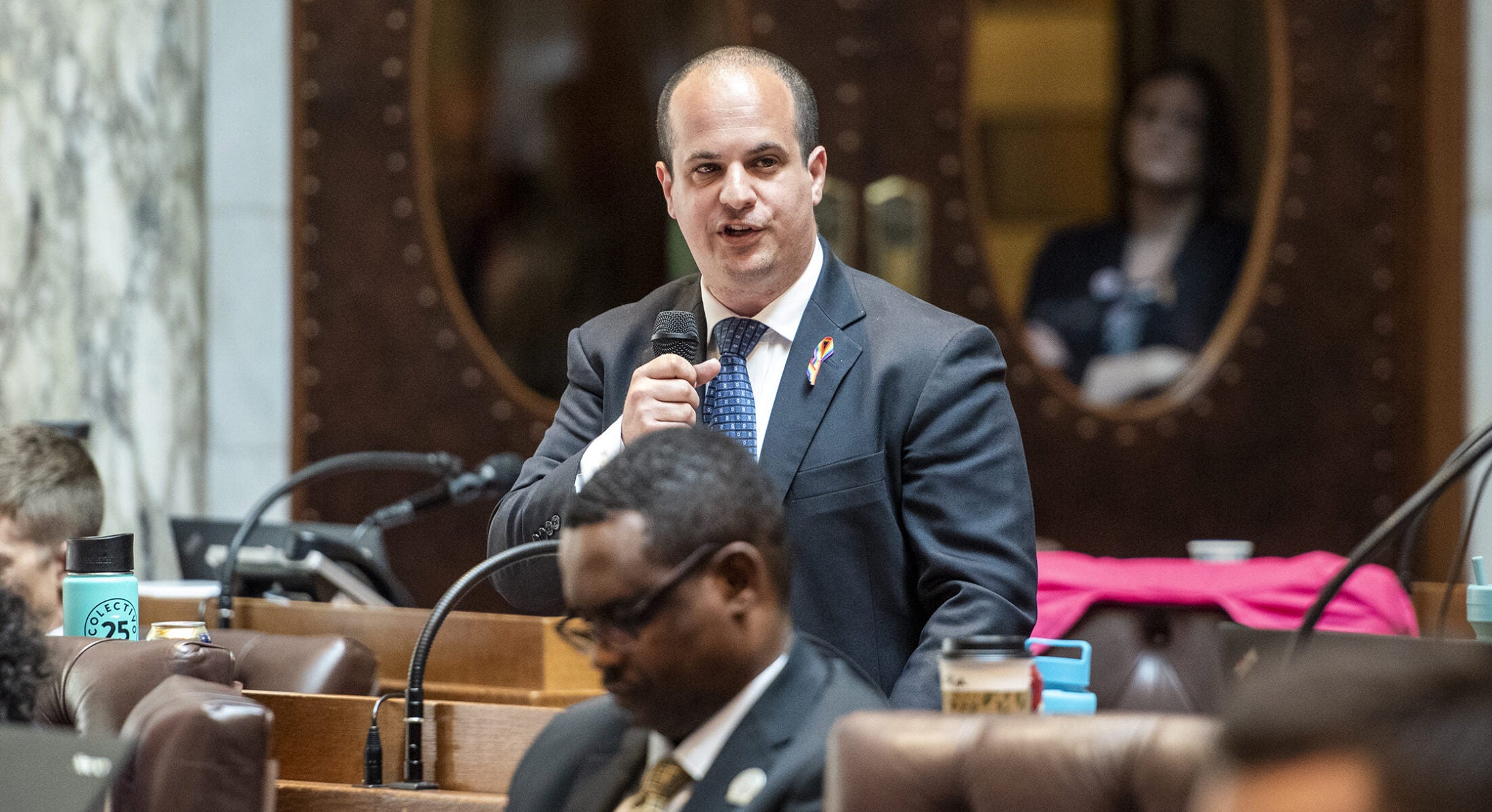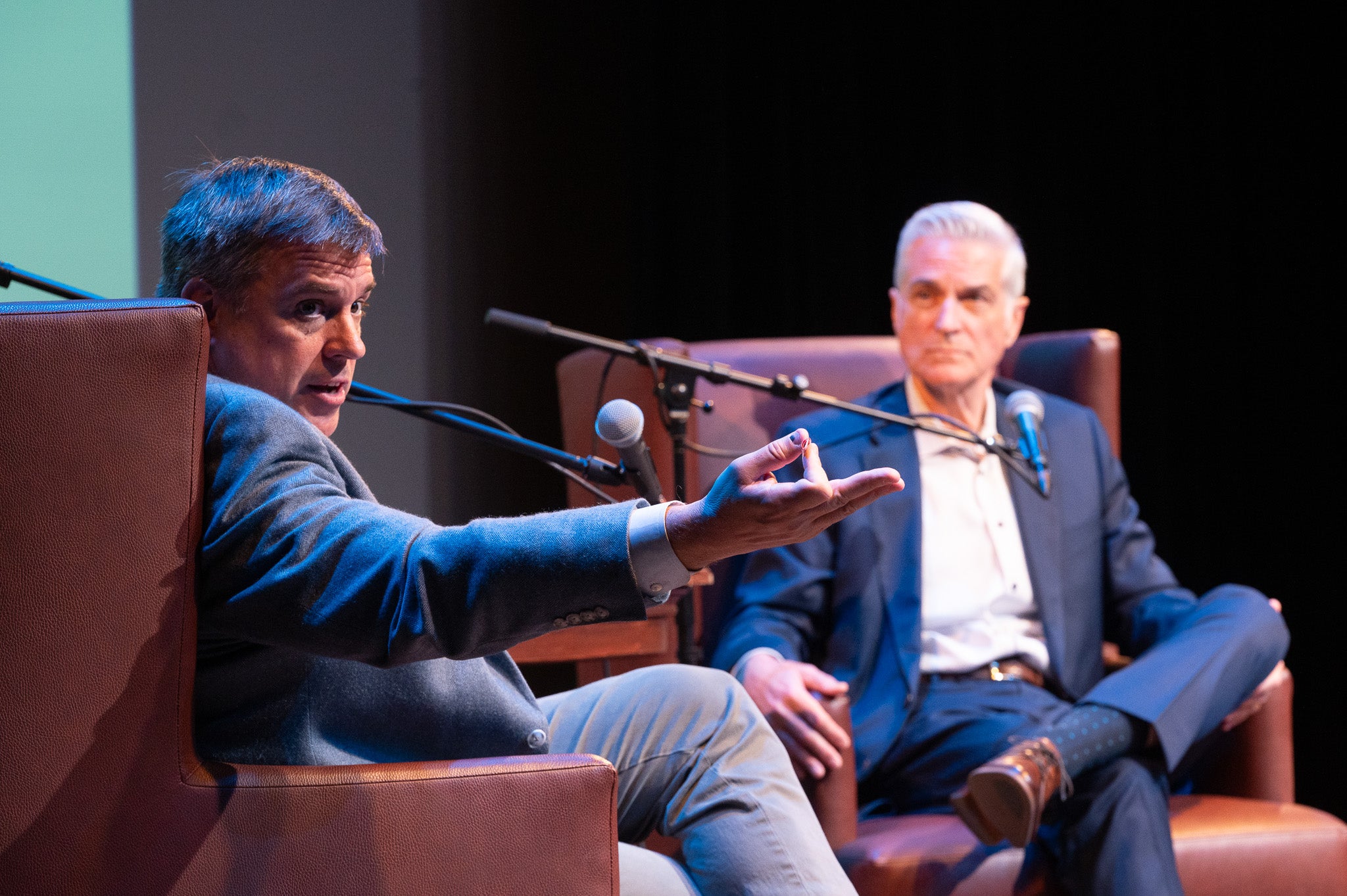Just a note before we get started. This episode contains the F word and graphic descriptions of violence.
SARAH LIEBZEIT: Hello?
Stay informed on the latest news
Sign up for WPR’s email newsletter.
PHOEBE PETROVIC: Hi Sarah, this is Phoebe.
In early 2020, I called a woman named Sarah Liebzeit. I needed some information — not about her, but about her son, Jonathan.
PHOEBE PETROVIC: Can you tell me a little about Jonathan, who is he?
Jonathan Liebzeit was born and raised in Wisconsin’s Fox Valley. When he was 10, his parents, Sarah and Ed, divorced and went through a messy custody battle for their two children.
SARAH LIEBZEIT: He got placement of Jonathan, um, and I had placement of our daughter. If each one of us had one there was no payment of child support. You know, it was at that point on that, you know, Jonathan was pretty much unsupervised.
Sarah Liebzeit says her son started using marijuana when he was about 12. And while a young teenager, got into alcohol and other drugs.
SARAH LIEBZEIT: He turned to sniffing gas. I tried to have Outagamie County commit him for sniffing gas, and basically was told it’s not an illegal substance. There was no help for him.
When Jonathan Liebzeit was around 15, Sarah says he and a friend were sniffing gas in his dad’s garage. And they got a hold of one of Ed Liebzeit’s guns.
SARAH LIEBZEIT: And they decided that they were, um, just gonna, I don’t know if they were playin’ Russian Roulette or what, and his friend actually shot himself in the head, but the bullet traveled along his skull and came out the top, and um, yeah.
The friend, you should know, survived.
And then, in 1996 — when he had just turned 19 — Jonathan Liebzeit took part in a homicide.
SARAH LIEBZEIT: It’s just — was so horrible and unbelievable, and I knew that there was never any intention to kill Alex. They went to beat him up over silliness.
PHOEBE PETROVIC: When you were sitting in that courtroom and trial was wrapping up and the jury left to go deliberate, what were you thinking?
SARAH LIEBZEIT: I didn’t — I really — I really don’t know if I can say what I was thinking at the time. It’s just. You know, I wasn’t sitting there thinking, ‘Let him out, let him out, let him out.’ You know? I knew he deserved to be punished, but not to die in prison.
Jonathan Liebzeit was sentenced to life in prison — without the possibility of parole.
SARAH LIEBZEIT: He’s now 42 and he’s pretty much grown up in prison.
In 2019, Wisconsin Watch received a tip about Liebzeit’s case. It alleged that the State had withheld information about a key witness.
And by “state,” it meant Outagamie County District Attorney Vince Biskupic.
As far as I can tell, no one has ever reported on these allegations before. They add to the pattern of behavior we’ve seen in some cases prosecuted by Biskupic.
And look, parts of this story will be difficult to listen to. It was difficult to report. But when we start to care about how prosecutors do their jobs, we have to care about it in every case — not just when it’s easy.
From Wisconsin Watch and Wisconsin Public Radio, I’m Phoebe Petrovic, and this is Open and Shut.
MIKE BALSKUS: It seemed like a pretty much, open shut case.
KATE O’BRIEN: I mean, this was open and shut.
JERRY BURKE: Nobody would have had to lie. It was an open and shut case.
PHOEBE PETROVIC I wonder can you, like, walk me through the night that Alex died?
JONATHAN LIEBZEIT: Um, I mean, like, I can try.
On the evening of October 26, 1996, Jonathan Liebzeit and his friend, Dan Mischler, made plans to go to Ed Liebzeit’s house. Liebzeit says Mischler talked him into it.
JONATHAN LIEBZEIT: Said, like, ‘Hey, you know, we can get more beer and get some weed and just go over there and hang out.’
The two men arrived at the house, where they met up with a third man named James Thompson, who was renting a room from Ed Liebzeit.
Liebzeit told Mischler that another man named Alex Schaffer was going to come over as well.
JONATHAN LIEBZEIT: You know, Dan was like, ‘Oh, you know, I hate that fucker or whatever. He owes me money.’
Liebzeit says he and Mischler both had their reasons for being upset with Schaffer. But I’m not going to get into them. Because none of them come close to justifying what happened next.
And just to note here — Liebzeit, Thompson and Mischler are all white. Some records identify Schaffer as Native American.
According to statements given to police afterwards, Jonathan Liebzeit and James Thompson started talking about beating up Schaffer. But Liebzeit insists the idea was always to scare him — not to kill him.
JONATHAN LIEBZEIT: Like I’m, you know, friends with Alex. I don’t know, like, back then the mentality was like, you know, when a friend start screwing up, sometimes we beat each other up, and, to try to like fix our behavior, but friends would fight and make up and still be friends, you know?
Yeah, no. I didn’t understand this at all. That is not how I have settled arguments with my friends.
PHOEBE PETROVIC: Where did that mentality come from, do you think?
JONATHAN LIEBZEIT: I don’t, I don’t know. I mean, some weird, like, ‘Lord of the Flies’ thing or, you know, I don’t know. Like today, like clearly, it was wrong.
And this is going to become important later. While the three young men were discussing all this, they were not alone. Ed Liebzeit had several renters living at his place. One of them, a young woman named Jayme Bowman, was hanging out with the guys that night. And she says she overheard some of what they were saying.
The men started talking about where they would take Alex Schaffer. James Thompson brought up Kaukauna’s drainage tunnels. Liebzeit knew about them because he and his friends used to explore them as kids.
JONATHAN LIEBZEIT: And he’s like, ‘Oh, we could go down there, beat him up.’
Alex Schaffer showed up around midnight. They had more to drink —
PHOEBE PETROVIC: How many beers do you think you had that night?
JONATHAN LIEBZEIT: I don’t even remember, like, I don’t know, more than 12? I mean I, I was pretty drunk.
And then Thompson, Mischler, Liebzeit and Schaffer all went into the woods in Horseshoe Park, just across the street from Ed Liebzeit’s house.
They told Schaffer they were going to smoke some weed.
JONATHAN LIEBZEIT: I guess like we did try to ambush him in that sense.
PHOEBE PETROVIC: Can you explain that a little bit more?
JONATHAN LIEBZEIT: Well, I mean, we didn’t tell him ‘We’re going to take you to the park and beat you up for fucking up.’
Thompson brought a flashlight and a baseball bat wrapped in electrical tape. He stuffed the bat down his pants, and Schaffer didn’t know it was there.
This next part is fairly graphic.
The four young men entered the storm sewer. Liebzeit says that Thompson started prodding him in the back with the bat.
Here’s how Liebzeit describes what happened next.
JONATHAN LIEBZEIT: So I ended up taking the bat and hit Alex, like, in the back of the legs, like lower, like, thigh or so.
Schaffer fell on the floor of the corrugated steel tunnel, which was covered in sludge.
JONATHAN LIEBZEIT: I was swinging the bat again, and kinda hit him in the side of the head. The tunnel is maybe like six foot diameter, and there’s not a lot of room to really swing. I knew I wasn’t really like hitting him that hard. You know, didn’t seem so.
At some point Schaffer tried to get away — but Liebzeit says Mischler grabbed him and hit him with the bat. Thompson dropped the flashlight during the scuffle, extinguishing the only light in the cramped space.
Schaffer broke away again. And the three men chased him out of the tunnel, with Thompson in the lead. Liebzeit says he exited the tunnel to find Schaffer on the ground. Thompson had him in a headlock and was hitting him with the flashlight. And Liebzeit started attacking Schaffer with the bat — again.
JONATHAN LIEBZEIT: There’s, you know, there’s more room to swing and I kinda hit him pretty hard, I think.
Liebzeit says he hit Schaffer in the head again. Mischler later testified that, this time, he heard a crack. At trial, two experts testified that the multiple blows to the head would likely have killed Schaffer — if something else hadn’t killed him first.
Liebzeit says Schaffer tried to get away. But he fell into water that had collected under the drainage tunnel.
JONATHAN LIEBZEIT: He went in the water and then they just pushed Alex under water.
James Thompson and Dan Mischler held Alex Schaffer’s head under water. And they kept him there for a couple minutes.
JONATHAN LIEBZEIT: And then Dan was like, you know, ‘He feels cold or something, and I don’t think he’s moving anymore.’
Liebzeit says Mischler and Thompson carried Schaffer’s body back into the tunnel and left him there.
A day later, Jayme Bowman — the young woman living at Ed Liebzeit’s house — turned them in.
Police heard different versions of what happened from Liebzeit, Thompson and Mischler. Dan Mischler provided valuable information to investigators. In exchange, Vince Biskupic offered him something called “use immunity,” which means Mischler’s own testimony couldn’t be used against him in court.
Mischler eventually testified against Liebzeit and Thompson. Both were found guilty of first-degree intentional homicide and hiding a corpse. They were sentenced to life without parole. Mischler ultimately pled no contest to second-degree intentional homicide. He was sentenced to 20 years and released in 2009.
This is where many “Law and Order” episodes end: the authorities nab the offenders, they’re convicted and they head off to jail. Case closed. The TV show usually doesn’t revisit them again.
But the tip Wisconsin Watch received made me take another look at the Liebzeit case.
It had to do with Jayme Bowman — the young woman who was hanging out with the men on the night of the murder.
During the investigation, Bowman gave several statements to the police. I haven’t seen them all. But in the statements I’ve been able to read, she said that the night of the murder, Liebzeit and his co-defendants had talked about beating up Schaffer.
JONATHAN LIEBZEIT: And then when she came to testify at trial, she said we talked about killing Alex.
That is a huge difference in a court of law. Bowman’s trial testimony showed evidence of intent to kill — that’s the standard for proving intentional homicide. Her earlier statements did not. Liebzeit’s trial attorney asked Bowman why she hadn’t mentioned the word “kill” in her first statement to police. She gave a few reasons. She’d never given a statement before, and she only remembered some of the details later.
But there’s something the jury didn’t know. In 2019 — over two decades after she testified — Bowman signed an affidavit saying that the police had helped her out during the investigation.
JONATHAN LIEBZEIT: The cops paid to keep her in the hotel, paid to get her the apartment and like spoke on her behalf to get her rehired.
In her affidavit, Bowman said that she had lost her job because of the investigation. But that police officers talked to her employer, and she was rehired.
PHOEBE PETROVIC: And how do you think things would have been different if this information had been known at trial?
JONATHAN LIEBZEIT: I think it’s possible that I would not have been convicted of intentional you know, and that that jury probably would have found me guilty of reckless, the lesser included.
And the lesser offense would’ve meant a lesser sentence. So, maybe life with a chance at parole, instead of dying in prison.
But Jonathan Liebzeit’s defense attorney didn’t know that the cops helped Bowman, because Vince Biskupic didn’t disclose that information. I reached out to Liebzeit’s original defense attorney, Kevin Musolf, and asked him about it.
KEVIN MUSOLF: That would have made a big difference because, uh, it would have attacked her credibility. The way I would look at it, if I knew this back then, it would be that either the police told her, ‘Look, we need you to say that they said they wanted to kill him, okay?’ And if the police didn’t tell her to say that, she certainly got that impression because they’re giving her all this stuff.
PHOEBE PETROVIC: So to you, does this constitute a Brady violation?
KEVIN MUSOLF: Yes, absolutely.
We talked about Brady violations in our last episode. The Brady rule, established by a 1963 Supreme Court decision, requires prosecutors to turn over exculpatory evidence prior to trial.
And this is what I meant when I said that Liebzeit’s claims fit the pattern of behavior I’ve found in some of Vince Biskupic’s cases. In a few of the cases I’ve looked at, there was important evidence that seems like it should have been turned over before trial, but wasn’t.
I’ve talked to Jayme Bowman several times, and she doesn’t want to do a recorded interview.
But she sent me a statement. More than a page. Single spaced. She’d clearly spent a lot of time on it.
In it, she wrote, quote – “The murder has caused over 25 years of emotions, disappointment, depression, anxiety, fear, torture, challenges, counseling, successes, failures, tears, Post Traumatic Stress, forgiveness, and shame.” End quote.
So yeah, I can understand why she didn’t want to do an interview. But she agreed to write down what she remembers.
On the night of the murder, Bowman says she was playing cards in the kitchen with Ed Liebzeit. Jonathan Liebzeit and his friends were moving between the living room and the kitchen, listening to music.
Everyone was drinking beer.
Bowman says she overheard Jonathan Liebzeit and James Thompson make several comments about beating up and killing Alex Schaffer. But she says, when people say, ‘I’m gonna kill him,’ they don’t always mean that literally.
When Schaffer arrived, Bowman says Liebzeit started quote – “feeding Alex beers.”
All this time, she says Liebziet was pressuring her to come with them to the park. But she refused. She says she didn’t want to see Schaffer hurt.
Before the men left the house, Bowman says Liebziet tried one more time to get her to come along, telling her that she could look away or close her eyes when they did the actual killing.
Bowman remembers Liebzeit and Thompson laughing and joking when they returned to the house. She wrote, quote: “One of them said ‘the little fucker wouldn’t die.’”
Bowman says she told the truth when she testified in court. And she wanted to be clear — she does not feel like she got any favors from the police.
Quote: “If Jonathan, James, and Daniel didn’t murder Alex, then I would have continued to have a safe place to stay. Instead, the home became a crime scene.” End quote.
When Bowman emailed her statement to me, she included this note. Quote: “Jonathan is guilty of murder and the district attorney and/or Kaukauna police did nothing wrong. If you use any or all of my statement, know that I agree with the decision the jury made.” End quote.
I’ve spoken to legal scholars. And Jayme Bowman is right about at least one thing. The Kaukauna police were not breaking the law by helping her find a safe place to live after she turned in Liebzeit and his friends for murder.
If it had been me, I would hope for the same thing.
But while police didn’t do anything wrong, legal scholars agree — the prosecutor, Outagamie County District Attorney Vince Biskupic, did.
ABBE SMITH: The outrage is that it wasn’t disclosed.
This is Georgetown University law professor Abbe Smith.
ABBE SMITH: They need to disclose — period. Because any defense lawyer worth his or her salt is going to cross examine on those points. You’ve got a witness who apparently, according to — to your account, changed her testimony along the way during a time when she’s receiving benefits from the police. A defense lawyer gets to cross-examine on that.
I can think of a few reasons why Jayme Bowman’s statements to police didn’t exactly match her testimony. She must have been scared. She must have been traumatized.
But that’s not the point.
The point is, Smith says, the defense had the right to know that police had paid for a hotel during the investigation. Helped her pay a security deposit on a new apartment. And talked to her employer so that she could get her job back. And that after Bowman received this help, her statements changed.
To emphasize this point, Smith cited a famous legal adage, calling cross-examination —
ABBE SMITH: The greatest engine ever invented to uncover the truth. That’s a little hyperbolic. But you have to be able to cross-examine both on prior inconsistent statements and also based on all of those benefits she was getting from the police or the prosecution. It’s classic motive and bias evidence.
In 2017, Jonathan Liebzeit filed a motion asking for a new trial based on, among other things, his lawyer’s failure to investigate the quote “financial incentives” Jayme Bowman received. The motion was denied. Liebzeit appealed, but the appeal was rejected. Liebzeit’s sentence of life without the possibility of parole stood.
We’ll be right back after a break.
—
Hey Open and Shut listeners. Investigative journalism like this costs time and money. Getting these stories right takes research over weeks, months and — in this case — years. That’s where you come in. Your support of in-depth and independent journalism makes everything we do possible. Support fact-checked journalism that has a direct impact on people’s lives by making a donation to Wisconsin Watch and Wisconsin Public Radio.
Learn more and donate to Wisconsin Watch and WPR at wisconsin watch dot org and WPR dot org. Thank you.
—
Jonathan Liebzeit is now 44 years old. He’s been clean and sober for years.
PHOEBE PETROVIC: I was really struck by the words you used, that Jonathan grew up in prison. Um, how has he changed over the last 24 years?
SARAH LIEBZEIT: Yeah, I know that’s kind of a bold statement, isn’t it?
Sarah Liebzeit again.
SARAH LIEBZEIT: Well first off, he’s educated himself. I can’t even tell you the volume of books that he’s read. He is extremely intelligent. He uses big words that I have to sometimes say, ‘What did you just say? What, what does that mean?’
And she says her son has taken up painting. She sent me photos of some of his work. One shows a winter scene with two deer. Another is a weathered gray house at the top of a hill.
And she tells me about another one — a beach scene.
SARAH LIEBZEIT: This picture he painted wasn’t from him sitting on a beach and painting the sand dunes. You know what I’m saying? This is all just him, sitting by himself (laughs) in a cement block building, painting.
But other things can happen when you grow up in prison without the possibility of getting out.
When I started looking into Liebzeit’s life in prison, I found something that made me question whether I wanted to tell his story at all.
Around 2010, Liebzeit sued the Wisconsin Department of Corrections and prison officials for barring his right to freely exercise his religion. In prison, Liebzeit became an adherent of Odinism — a type of pagan religion named after the Norse god, Odin.
Some white supremacist terrorists have been Odinists. The most infamous killed 77 people in Norway back in 2011. A 1999 FBI report called Odinism a quote “white supremacy ideology that lends itself to violence.”
Liebzeit’s suit against the Wisconsin Department of Corrections acknowledged Odinism’s connection to white supremacy. But it also claimed that he was not a member of any kind of violent gang and that he did not believe in the quote “superiority of any racial or ethnic group.”
Still, I had questions.
PHOEBE PETROVIC: Okay. Can you hear me okay?
JONATHAN LIEBZEIT: Yeah.
I asked Liebzeit how he got into Odinism. And he said that after his incarceration, he started seeking some guidance and direction. In the mid-2000s, he came across an organization called the “Odinic Rite,” spelled r-i-t-e.
JONATHAN LIEBZEIT: The Odinic Rite has a prison outreach. And I got some information from them, Prison Affairs Bureau. And, I don’t know, I guess it just really spoke to me and I was kind of drawn to the, I guess, codes of conduct.
PHOEBE PETROVIC: I want to jump in here, I mean the Odinic Rite describes itself as a folkish group that — and it only allows white members and it discourages mixed race relationships.
JONATHAN LIEBZEIT: Yeah. Uh, so, (clears throat) I don’t know that all of my (laughs) beliefs, um, align with, with theirs either. But like if people asked me, I’d probably say I’m folkish.
Folkish. Quick explainer here: some practitioners of this religion are “universalists,” meaning they believe that anyone from any background can practice the faith. But “folkish” practitioners believe it’s for white people only.
PHOEBE PETROVIC: Would you consider yourself a white supremacist?
JONATHAN LIEBZEIT: No.
PHOEBE PETROVIC: Are you aware of their ties to white supremacy?
JONATHAN LIEBZEIT: To some extent. Yeah.
We’ve looked and we can’t find hard numbers on this, but Liebzeit is far from the only person to find Odinism in prison. In a 2004 report, the National Gang Crime Research Center reported that Odinists were among the most common “white racist extremist” groups proselytizing in American prisons.
At the end of our conversation, I asked Liebzeit if he still considers himself an Odinist.
JONATHAN LIEBZEIT: (Laughs) Yeah. I mean, I use the term Odinism. I mean, I don’t know if I’ve answered your questions. I’m not, I’m not a bad person. I don’t hate anybody.
“I’m not a bad person.”
Look, I know that prison doesn’t always build character — and that some people leave prison worse than when they went in.
And I was honest with him: His case might be hard for people to understand. His crime, his religion — no matter his intentions — probably aren’t going to earn him a lot of sympathy.
So you might not come away from this story thinking, “Man, that guy was wronged.”
And as we were talking, Liebzeit seemed to sense that that’s where I was going with this.
JONATHAN LIEBZEIT: Does it matter if people are good or bad, whether or not the United States government, the state government trample people’s rights? Does that matter if they’re good or bad people? The Constitution and all that, like, it protects everybody, regardless of what you do. The government’s supposed to follow those rules.
My guess is that many of the people who say they’ve been victims of prosecutorial misconduct are somewhat like Liebzeit. Not entirely blameless or sympathetic. Not entirely innocent.
I asked Professor Abbe Smith about this.
PHOEBE PETROVIC: I can see people who are not super familiar with the criminal justice system being like, ‘Yeah yeah yeah, Professor Smith, what you’re saying is all well and good for someone who is wrongly convicted, but what about someone who is clearly factually guilty?’ Why do we care, in that case, that we live through our processes?
ABBE SMITH: You know, why should we care? It’s so interesting to me. A lot — people don’t care until somebody they love gets caught up in the system and then suddenly they care mightily. A friend, a family member, a neighbor. Then they really believe in procedural fairness. When you care about somebody then suddenly you think the system is a little overbearing.
Smith says there’s a difference between legal guilt and factual guilt.
ABBE SMITH: Legal guilt is what our criminal legal system is supposed to be concerned about. Not factual guilt, but legal guilt. A determination that’s arrived at through a deliberative process, and with some fundamental procedural safeguards. That’s how our system is built.
“Procedural safeguards” are based in the Constitution. The accused is presumed innocent. The state has the burden of proof. And the standard of proof is beyond a reasonable doubt.
And Smith argues, we have to test ourselves on the hard cases, the brutal cases — cases like Jonathan Liebzeit’s. We talked about this multiple times — in multiple conversations.
ABBE SMITH: It can’t just be for folks who commit petty crimes. It can’t just be for our kids when they get arrested shoplifting in CVS. It, it can’t be that those are the only cases in which we care about fairness. We have to test ourselves with the worst cases.
Smith and I first spoke in 2020. She had just returned from Guantanamo Bay, where she had observed military commissions hearings for the people being held there. She says, making sure these cases are treated fairly — legitimately — is important.
ABBE SMITH: People have to believe that our system of justice is fair, that we afford all of the procedural protection, um, available, um, that due process actually lives. And if we don’t do it in those cases, well then we’re not really doing it at all. We need to all feel secure that when somebody is convicted for a really terrible crime, they’re rightly and fairly convicted. And so it’s a hard one, I guess. You know, I want jurors and I want the general public to believe deeply in the abstraction of the rule of law.
There’s a sort of coda to Jonathan Liebzeit’s story. In 2020, a judge agreed to reopen his case and resentence him. The decision came not from any problems with Vince Biskupic’s prosecution, but advances in neuroscience. The judge said, had he known then what he knows now about how long it takes for adolescent brains to develop — especially if they’re affected by drug abuse like Liebzeit’s — he would’ve sentenced him differently. The judge made Liebzeit eligible for parole.
The state is appealing that decision.
Next episode, we’re finally going to talk about the case I was first hired to investigate — and it’s a wild one.
ARCHIVAL – VINCE BISKUPIC: You told Officer Shephardson and Manion you forced the girl in the truck.
ARCHIVAL – KEN HUDSON: I never told them that. Where’s the audio and video? Where is that video, Vince Biskupic?
Open and Shut is presented by Wisconsin Watch and Wisconsin Public Radio.
It’s reported by me, Phoebe Petrovic, and Dee J. Hall.
We’re produced by Nina Earnest and edited by Karen Given.
Mixing by Brad Kolberg. Music by Karl Christenson. Additional support from Andy Hall, Coburn Dukehart and Clare Amari. Special thanks to our legal review team: Christa Westerberg and Aaron Dumas.
Digital editing by Alyssa Allemand and David Hyland.
You can subscribe to Open and Shut wherever you get your podcasts. If you like the show, please make sure to give us a good rating. It’ll help more people find us.
You can see more at WPR dot org slash open and shut.





